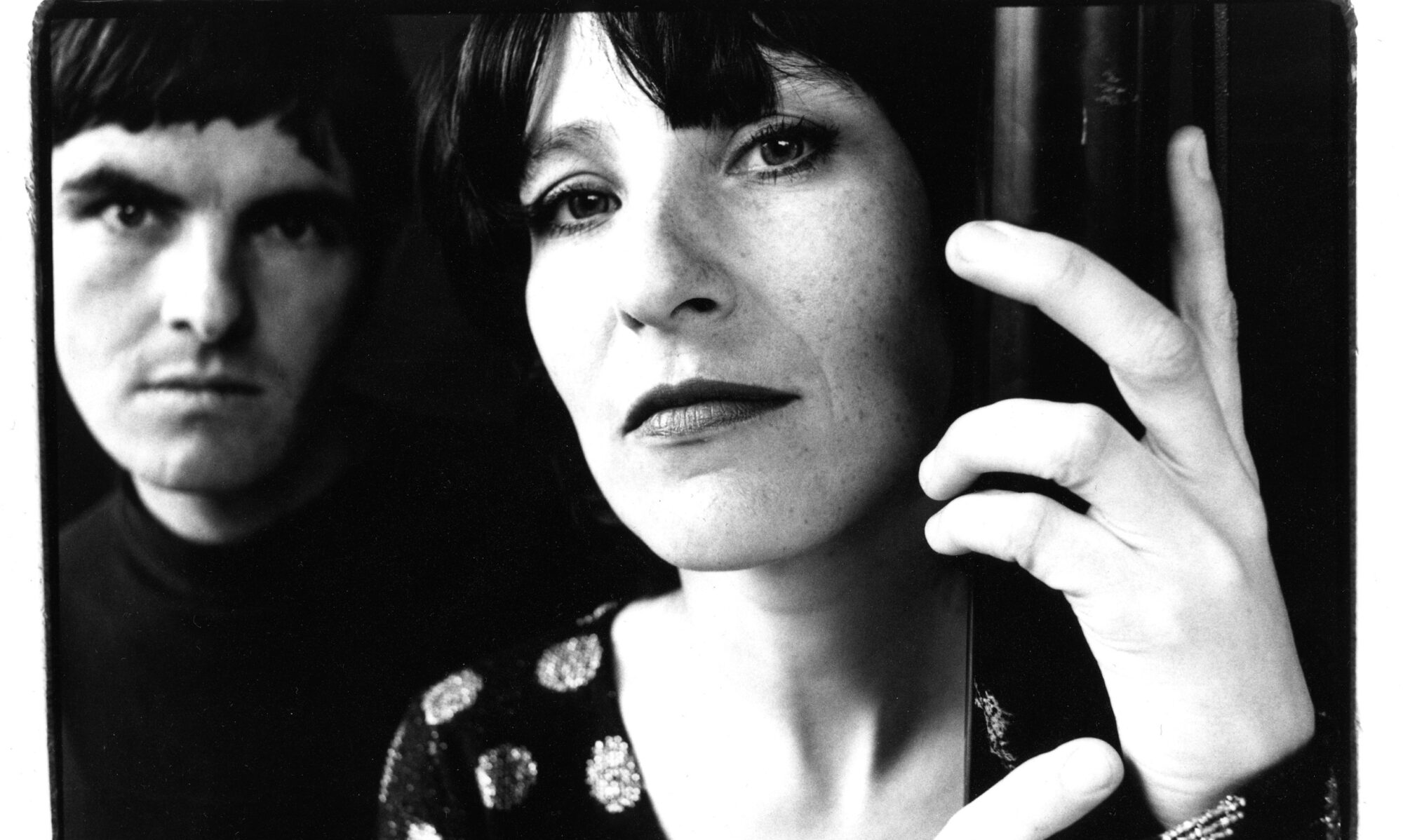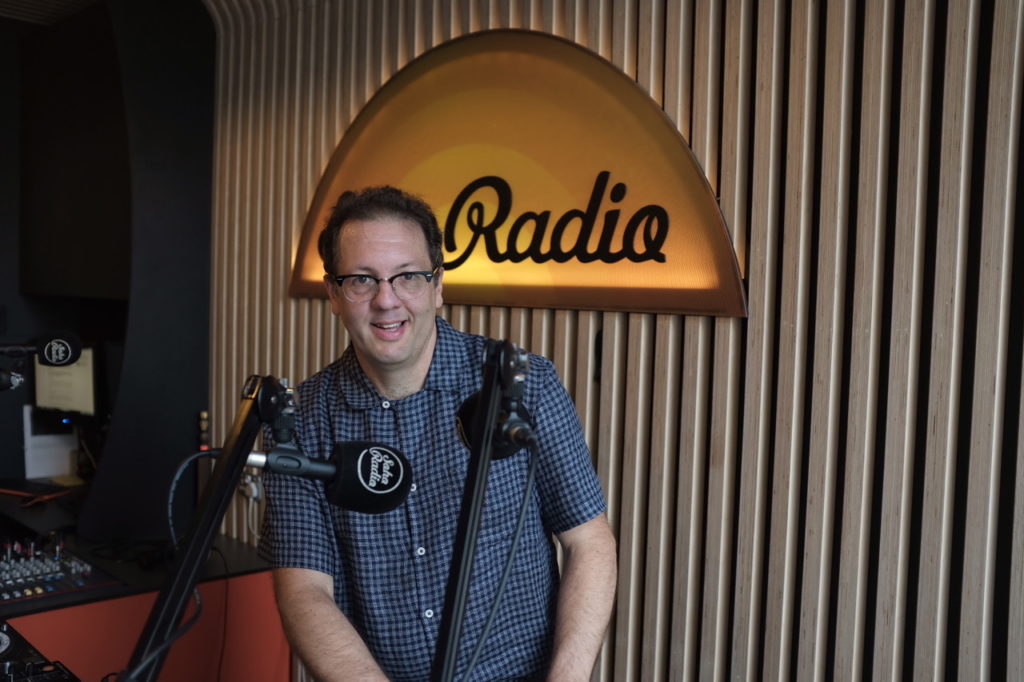
We’ve been big fans of Pete Paphides since the 1990s when both of us worked for the Time Out media family. One year ago today he published a memoir called Broken Greek — a warm, funny, relatable and charming tale. It captures the thrill of discovery for a young record shopper, the brutality and wonder of childhood, the split identity people from two different cultures often feel, and the euphoria of great pop songs in general. If you haven’t read it, now would be a good time to burrow back in time to Birmingham 1982, where Pete fumbled his way into adulthood to a mighty mighty soundtrack. We caught up with him again(!) to chat about the book. (You can also follow him on Twitter and listen to his Soho Radio show)
chickfactor: so how did it feel to put yourself out there?
pete paphides: it didn’t really feel like that. First of all, I started writing the book without knowing if I would finish it. Secondly, when I finished it, I had no idea if it would find a publisher. And then, when we found a publisher, I didn’t know if anyone would want to buy it. So those are three pretty big provisos! The amount of green lights required for me to get to a position where I’m “putting myself out there” was quite a lot. It was only when the book was finally out and I read the reviews that I realised what I’d done was quite exposing. But by then, it was too late. And because the reviews were nice, that softened the impact. The worst thing would be to reveal something personal about your life and for total strangers to say, “This has no real value”… that would have been a bit embarrassing.
Tell us about the process – how long it took to write, were your editors heavy or light, any sort of details about where you write/how you best go about focusing on writing?
I started work on Broken Greek at the beginning of 2017. I wanted to write a book that felt as much like a history of music during a particular period as it did a memoir – and the connecting tissue between those two things was the way that music gave me an identity that was different to that of my parents. They were Greek and Greek-Cypriot, but I could never wholly identify as Greek because I was born in England. And pop was the engine of that realisation.
There were no editors, because I didn’t show it to any until it was finished. My friend Bob Stanley was invaluable throughout this time – he read every chapter, and when it started to become clear that this was going to be a lengthy book, he told me to hold my nerve and believe that it needed to be this long. And he was right. We only showed the book to one publisher – Katy Follain at Quercus, who first approached me about 20 years ago, when I was still at Time Out. She asked me if I had any ideas for a book. I told her that I was probably never going to write a book. And she just said, “Well, I hope you don’t mind me calling you up once every couple of years, because I think that one day you might – and when you do, I’d love to see it.” So, after all these years, I thought it was only correct that if I did write a book, Katy should be the first editor who sees it. That said, imagine how embarrassing it would have been if she thought it was awful…
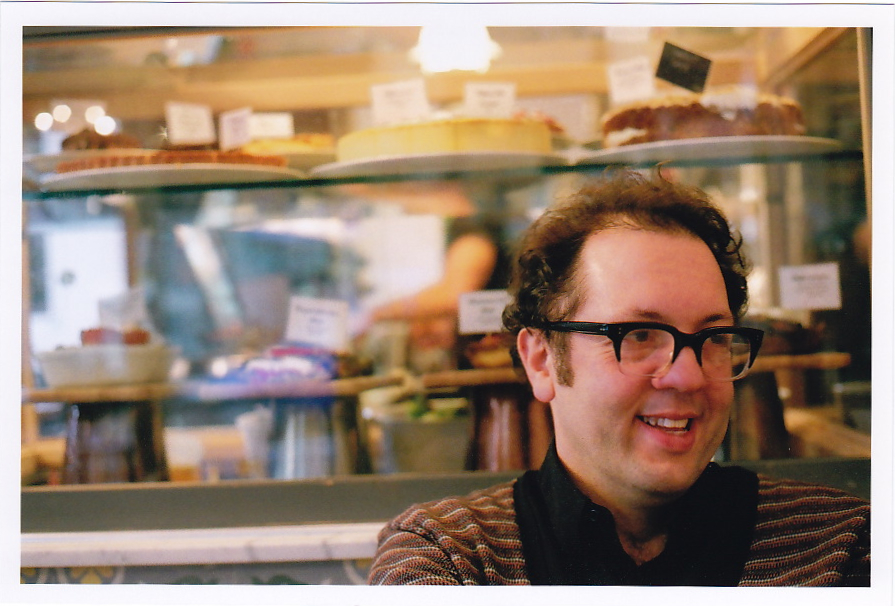
The book was mostly written in cafés in North London. I find that the best place to write is in a café, surrounded by the everyday background bustle of people going about their business. At the beginning of the process, I’d drop my youngest daughter off at school in Golders Green (about five miles from our house) and make a short walk to a café called Bar Linda, which is right next to the tube station and coach terminus. It was pretty perfect in there: large windows, plenty of light and clay-coloured tea, poured out of huge stainless-steel teapots for tube train and coach drivers on their lunch breaks. I wrote the section about Sound Affects by The Jam in there; and at Bar Linda, I also wrote the early section where I heard The Rubettes’ Sugar Baby Love for the first time. Most of the final half of the book though, was written in another cafe The Palace (now renamed The Breakfast Hub) in Crouch End. It’s run by a young Turkish guy called Efe – they were so good to me in there. Ida who works there is Lithuanian. Every morning I’d go straight into the Palace from the YMCA gym across the road and, without even having to ask me, Ida would deposit a frothy coffee on my table. Nescafé on formica in a bustling caff – that’s my happy place. When the first hardbacks were ready, I went straight to the Palace and handed one to Efe and Ida. It’s now sitting on a shelf above the chilled display counter.
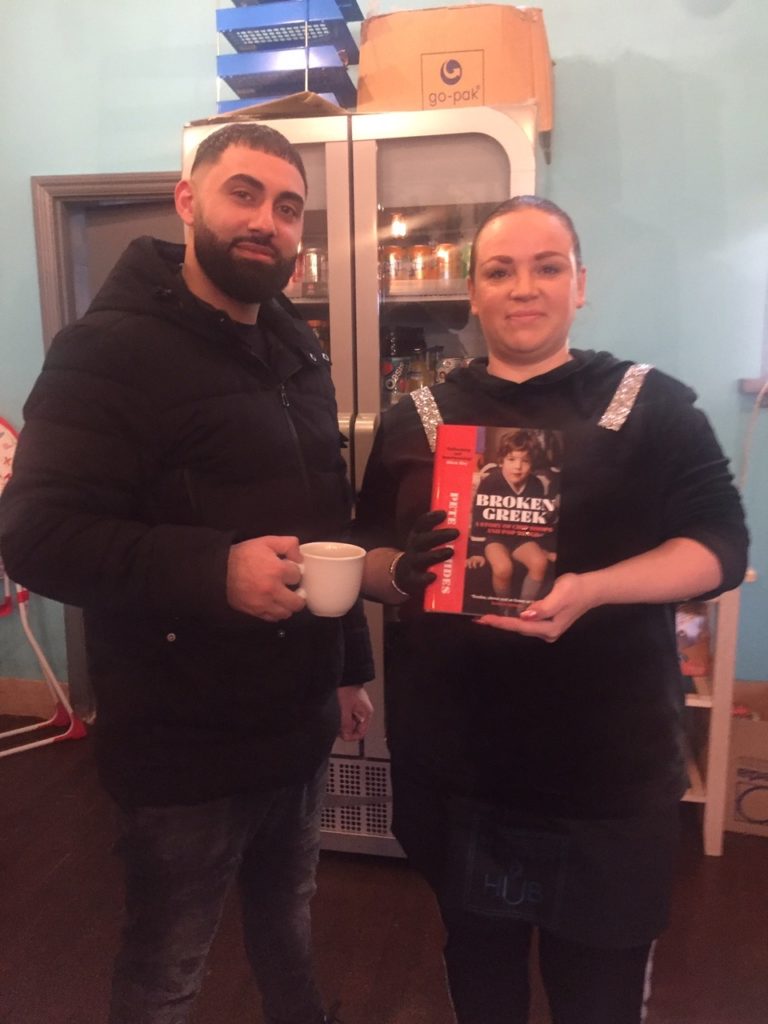
What kind of response did the book get from your family and friends?
Generally, lovely. It seemed to affect my mother quite deeply. I think it made her feel like someone had borne witness to some of the unpleasant things that had happened to her. And that in turn made me realise that, as you get older, it does help you to achieve some measure of closure to have gone through some sort of adversity and feel like someone was watching as was able to help tell your story. Some of the most touching responses have been from musicians whose records I love – some of whom were even featured in the book: Helen O’Hara and Billy Adams from Dexys were both so lovely. Two of my favourite bands, Crowded House and The Trashcan Sinatras, made videos for singles and deliberately placed the book in background shots without telling me. Even when I watched them, I somehow didn’t notice – other fans had to pointed them out to me! I interviewed Elton John for a Record Collectorfeature and he had been reading the book in the days preceding the interview – he said that me in the book reminded him of himself at that age. Robert Forster of The Go-Betweens was lovely about it too. You can imagine how that felt – I was 15 when I bought my first Go-Betweens single (“Bachelor Kisses,” swiftly followed by “Part Company”). I love that band so much.
And from strangers?
Way, way, way beyond my wildest expectations. I get messages via Twitter every day – people from all sorts of backgrounds who saw something of their own childhoods reflected in the book.
And the critics?
Again, just great. The first review to appear was by the former Labour MP Alan Johnson in The New Statesman. I’ve never met him; I had no idea he’d even been given the book.
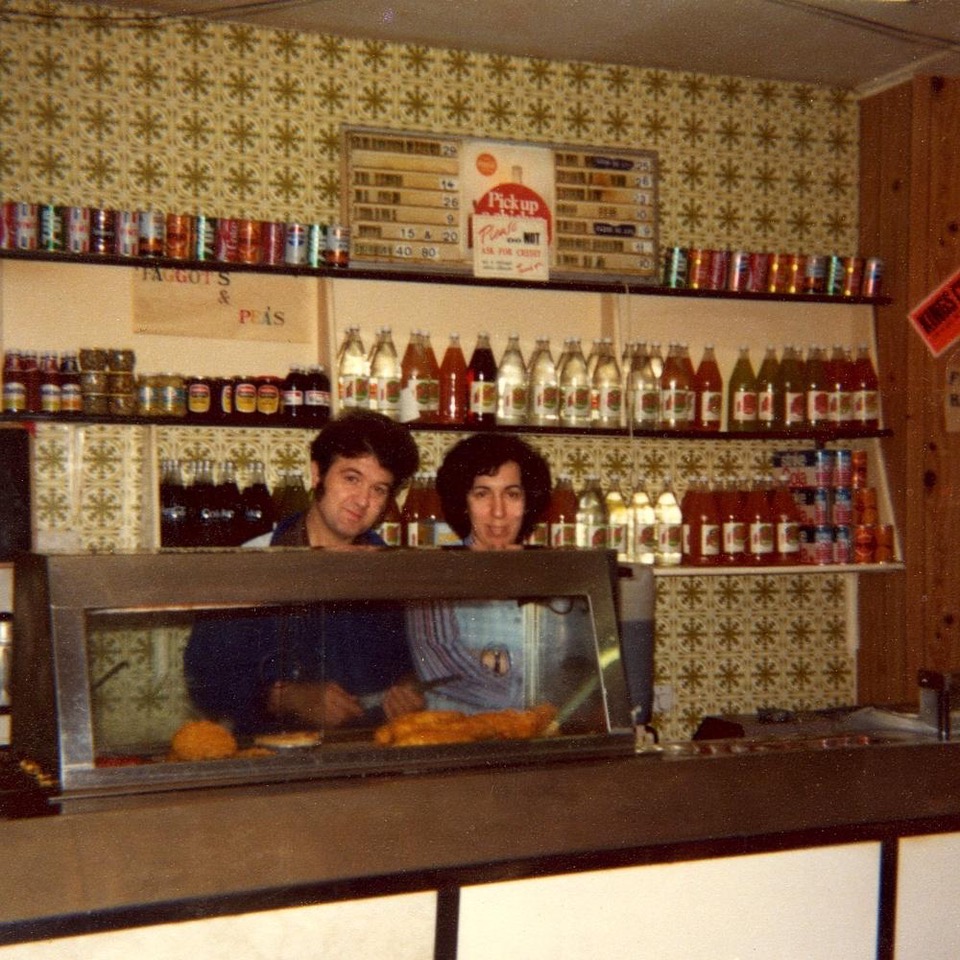
Was your family upset by it at all? Did they read it in advance?
I didn’t show them the book in advance because I wanted them to read everything in its correct context. My dad is a complex character and you can’t really sugar-coat that. But if he didn’t also come across as a loving, conscientious father to his kids, then I haven’t done my job properly. That said my parents’ marriage isn’t what you would call – by the modern expectations – a harmonious one. I think we forget the degree to which notions of duty and expedience were once soaked into the definition of marriage. People didn’t expect their marriages to be like the fairytale idea of marriage. That’s why I wanted to mention Fiddler On The Roof in the book – because in some ways, that corresponds more closely to my parents’ notion of what a marriage might be. I think it was a bit of a shock for my dad to see how much I had remembered and to read about how his marriage had seemed to me as a child observing it. I didn’t think my mum and dad were particularly well-suited to each other, and those differences were compounded by their decision to leave behind their support systems, their extended families and run a succession of fish and chip shop in Birmingham for 25 years. I still feel that way, but I have to respect their belief in the sanctity of marriage to the exclusion of almost all other considerations. I don’t quite see it that way. A successful marriage can last for five years if those five years are happy ones. And conversely, if marriage lasts a lifetime, that alone doesn’t make it a success. So, yes, some of the details about their marriage would have been upsetting for him to read, but if I’d chosen not to include them, there would have been a gaping vacuum in the book. He wasn’t always the easiest person to be around, but he was under a lot of pressure, trying to keep a business going in a country that he only stayed in because his kids wanted to be here – and I wouldn’t have swapped him for any of the other Cypriot dads. And I have to say, after the initial surprise, he’s been great about it. We phone each other every couple of days. In fact, the first thing I’ll probably do after this is call him.
What did your daughters think of it?
They’re too busy creating source material for their own memoirs to read mine!
What is the funniest response about the book that you got?
I stopped reading the Amazon reviews quite early, but one of the first negative ones suggested that I might be autistic. It was the combination of disdain for the book and concern for my well-being that stuck in my memory.
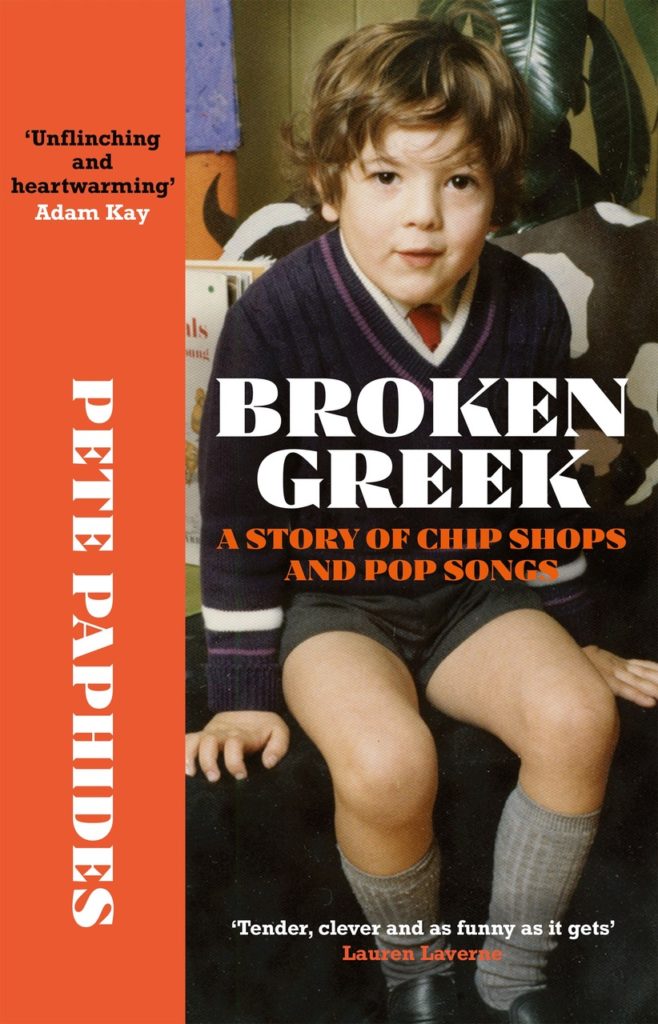
Tell us a bit about the launch. When was it? Who attended?
March 6, 2020 – the day of publication, a fortnight before lockdown. One of the most surreal days of my life. The basement of the Heavenly Social in central London. On the ground floor, Cornershop were hosting the launch party for their album England Is A Garden. I arranged for a ‘house’ band of some friends to play a few songs – covers of songs that were mentioned in the book. That came about after my friend Mike Batt (who was the guy behind the Wombles records in the early 70s) offered to play a couple of songs at the launch. Obviously, when Mike Batt offers to play at your launch, you bite his hand off. Then after that, things snowballed. Mike and I are both friends with David Arnold and Eos Counsell. David is, of course, a brilliant soundtrack composer and all-round lovely human; his partner is Eos who is a member of the popular classical quartet Bond, and a brilliant funny human being. Then David said, “I do a pretty good version of E.L.O.’s Livin’ Thing, on which Eos can play violin. Then somewhere along the way, Helen O’Hara from Dexys Midnight Runners, Sean Read (Dexys, The Rockingbirds), Dan Gillespie Sells (The Feeling), Kate St. John (The Dream Academy), Andy Lewis (Paul Weller, Pimlico) and James Walbourne (The Rails, The Pretenders) got involved. What James didn’t tell me was that, for the version of “Back On The Chain Gang,” he asked Chrissie Hynde if she fancied coming along and taking the lead. So suddenly, I’m at my own launch party watching Chrissie Hynde singing my favourite Pretenders song, and one of my favourite songs of all time. Then, a few minutes later, there’s Darren Hayman a.k.a. the world’s biggest Wombles fan, losing his mind because his childhood hero is up there doing “Remember You’re A Womble.” Being an exceptionally lovely man, Mike then offered to appear at the Rough Trade event to perform two songs with Stevie Jackson – who had primarily agreed to come along for the reading. Instead of my reading out extracts from Orange Juice songs, I figured it’d be much more fun to have Stevie actually singing and playing them in person. He also did a magnificent version of “Silver Lady” by David Soul. You know how much I adore Belle & Sebastian, so imagine how it felt to have him agree to do that, and to be up there on stage next to him.
You clearly have met some of the pop titans from your childhood via being a music writer – can you tell us a bit more about who/when/how it went?
I met The Bee Gees in 1997, when I was still working for Time Out. That was a big deal for me, because these were people who I adored from a distance, watching them on TV when I was still in my pre-teens. They were promoting the release of their album Still Waters, and the three of them were gathered in Barry Gibb’s house, which was a mansion a short drive outside London. I walked into Barry’s house and he was on the phone to someone from The Brit Awards, where The Bee Gees were shortly due to receive a lifetime achievement award. He was berating them for suggesting that they receive their award from Jarvis Cocker. Barry objected on the basis that, during the previous year’s ceremony, Jarvis had “invaded” the stage during Michael Jackson’s performance of “Earth Song” – he’d been unamused by that. Anyway, the interview – once it had gotten underway – went so well that, at the very end, I summoned up the courage to ask the Bee Gees if they might be willing to sing an outgoing answerphone message to the tune of “I’ve Gotta Get A Message To You.” I asked them if they could sing, “If you want to leave a message for Pete/Hold on, hold on/Leave your name and number after the beep/Hold on, hold on.” To my amazement, they did it – two attempts to get it as good as they wanted it to be! When I got home and played it to my then-girlfriend Caitlin, she dropped to the floor in amazement. Twenty-four years later, she still insists that’s the thing that made her decide that we should be married.
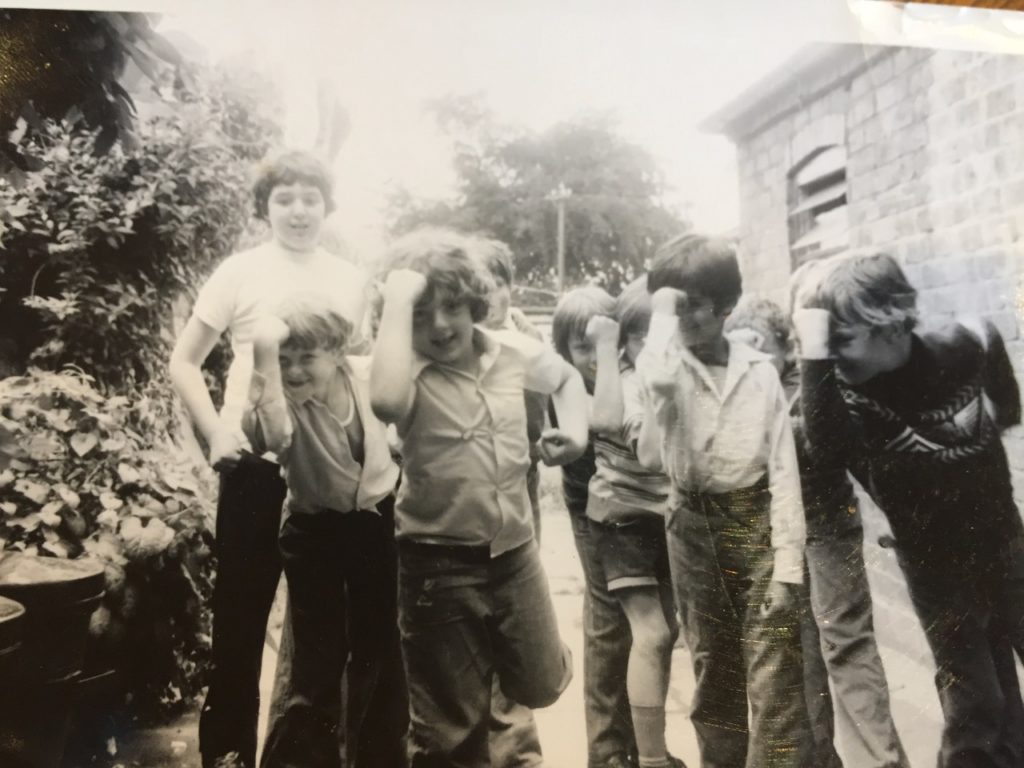
This is clearly the first chunk of your life. Are there various other sequels to come, in a Tracey Thorn sort of way?
Too early to say. I work pretty slowly – even more so while lockdown is ongoing and there are no cafés to work in…
What are the plans for putting Broken Greek on the screen?
It’s been optioned for TV by Andrew Eaton (The Crown, 24-Hour Party People) and we’ve found a writer to adapt it, but whether it’ll ultimately happen, who knows? Lots of things get optioned but never made.
What other autobiographies have you loved to bits?
Julian Cope: Head On/Repossessed; Robert Forster: Grant & I; Chrissie Hynde: Reckless; Katie Puckrik: Shooting From The Lip. Those are the four standouts for me.
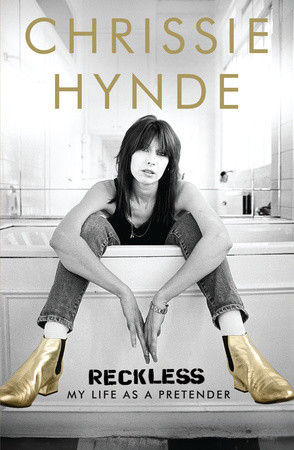
Whose autobiography that hasn’t been written yet do you long to read?
Linda Thompson.
What music from the book do you still play a ton?
Loads. When I’m writing, I tend to listen to music that I know inside-out, so any MOR, soul, disco, New Wave and synth-pop megahits from the late 70s will serve that purpose.
What is your favorite Greek music of all time?
Manos Hadjidakis’s work runs the gamut of soundtracks, pop, popular folk songs and classical. I listen to his music a lot. Nikos Xylouris is someone I mention in the book – he was a Cretan singer who rose to become something of a folk hero in the late ’60s and ’70s up to the time of his death in 1980. My parents reacted to his death the way most people of their age reacted to John Lennon’s death.
What snacks from your childhood are the most comforting in 2021?
Primula Cheese Spread that comes straight out of a tube – that’s been a dramatic rediscovery for me lately. Also McVities Ginger Cake: thirty seconds in the microwave with a blob of tinned custard added to it. A bowl of Crunchy Nut Cornflakes with hot milk just before bedtime is pretty hard to beat.
Do you know what’s become of the characters from your book apart from your family and rockstars?
One of my teachers has been in touch – my German teacher. For legal reasons, I had to change most of the names in the book. His real name was Mr Thomas, but I didn’t try too hard to change his name. I just removed the ‘a’ and called him Mr Thoms because he was tall and had a moustache, just like Peter Thoms, the keyboard player and trombonist from Landscape, who had a hit in 1981 with a song called “Einstein A-Go-Go.” When Mr Thomas got in touch after reading the book, he thought it might have been a typo. One name I didn’t change was that of Ged, the older girl who lived next door because we’re still in touch—she’s a librarian these days—so she was able to give her approval. In fact, one of the nicest things about the response to the book has been the affection that people feel for Ged—she’s like the surrogate older sister that everyone would like to have had. When we hosted one of Tim Burgess’s Twitter Listening Parties for a Broken Greek–themed playlist, I got to introduce everyone to Ged. I can’t tell you how surreal it felt to have Tim Burgess from The Charlatans tweeting Ged because he knew her from the book.
Here is a little promo film we made for the book. We didn’t have an advertising budget, so I got my friend Johnny Daukes to record a version of Brotherhood Of Man’s 1976 hit Save Your Kisses For Me (the winning song in the 1976 Eurovision Song Contest and mentioned extensively in the book) in the style of Subterranean’s Homesick Blues. Johnny is a genius. Not only did he record the song, but he made the video.
What films/TV/music/whatnot have gotten you thru the past year? Or the past four or five for that matter?
Caitlin and I hadn’t watched The Sopranos prior to December 2020. We can now concur with the popular view that it’s the all-time greatest televised work of fiction. We also binge-watch any programmes hosted by Cornish TV chef Rick Stein. We’re strangely comforted by what an awkwardly on-camera presence he has. He also doesn’t know how to end and on-screen conversation. The forced smile at the end of the exchange is almost unbearable. And yet also, as a participant in that moment of awfulness, I feel like I’ve been propelled to the essence of something of great existential significance. So much of life feels like that moment fleetingly captured in Rick’s pained grimace. Obviously, Seinfeld and Cheers FOREVER. We’re also big fans of Best Home Cook. Claudia Winkleman can do no wrong in my book. The fact that, ultimately, none of this really matters is the complicit unsayable bond between her and the viewer. Finally, can I also mention Queer Eye, which is the one show that will never fail to envelope our family in feelings of warmth and well-being? We encounter way too much wanton cruelty in our everyday lives, and so it’s more important than ever – to misquote The Chills – look for the good in others so that they can see the good in you. If we were all a bit more like Jonathan, Karamo, Antoni, Bobby and Tan, the world would be a much healthier place.
Can Brexit be reversed?
I think so. But not the damage to the lives of all the small businesspeople who were duped into believing the lies on which it was predicated. This country – or, more specifically, the level of political discourse – needs to grow up a little.
What’s the first thing you’re going to do once we’re all allowed total freedom?
My local YMCA gym – in particular, the perfumed hair and body wash that comes out of the pump-action dispenser in the shower. Working in cafés. Record shops. All of these things, in any order.
Do you have any future plans/books/etc.?
I co-run a small reissue label called Needle Mythology. We’ve put out records by Stephen Duffy, Ian Broudie, Tanita Tikaram, Bernard Butler & Catherine Anne Davies and Robert Forster. They sound as brilliant as they look, and we’re putting out some more this year, by Whipping Boy, Neil & Tim Finn and Butcher Boy. We’re also about to put out our first brand-new album, The Obvious I, by Ed Dowie. I don’t know if there’ll be a sequel to Broken Greek. I’m proceeding slowly, much as I did with the first one. And if it turns out to be a book, then great. If not, well I’ve still written one more than I ever thought I would.
Thanks for chatting with us, Pete!!
Thank you. It’s a continuing honour to have the chickfactor stamp of approval.
Read these two excerpts from Pete’s book here and here.
